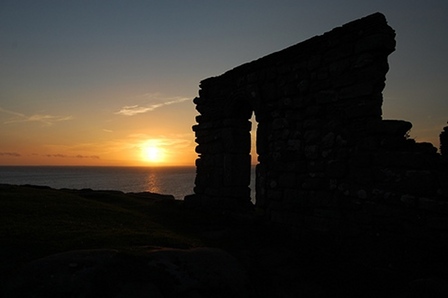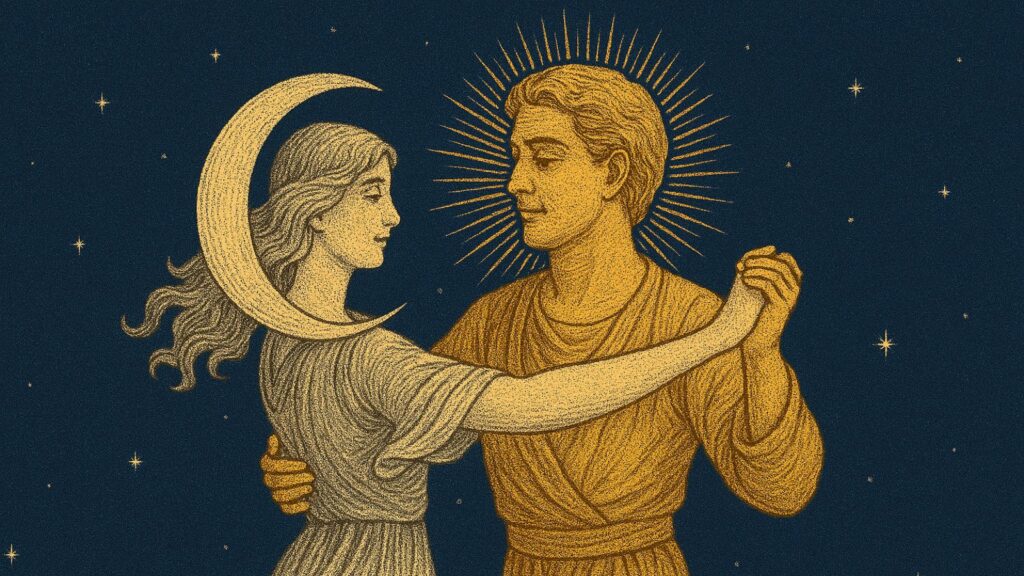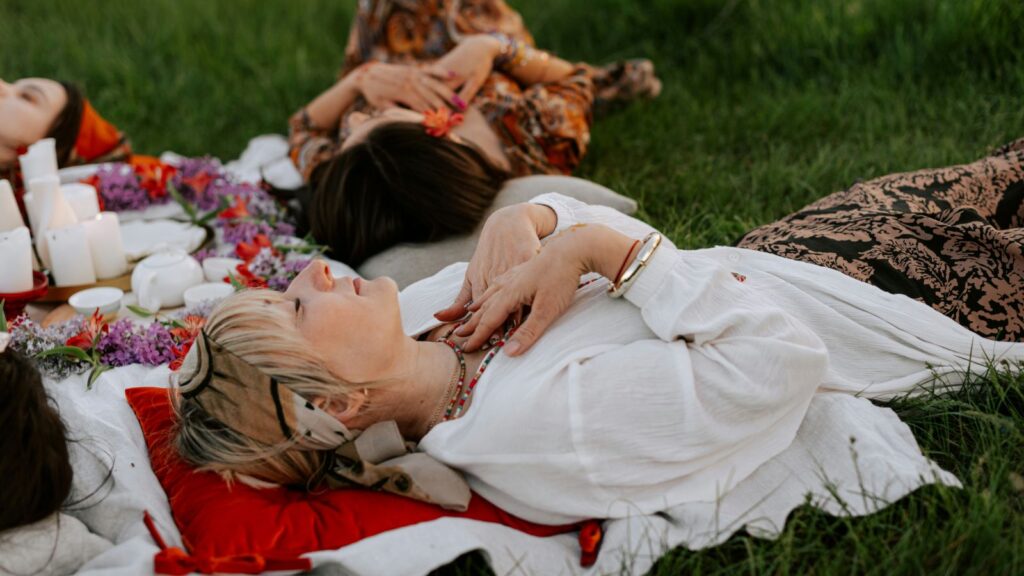Few writers can match Graham Hancock's influence as the author of several breakthrough books of alternative history, including Fingerprints of the Gods, Underworld, and Supernatural. His work has been instrumental in challenging institutional thinking about humanity's lost past, while bringing the indigenous shamanic perspective to a broader audience. He's certainly someone to talk with about the significance of our present moment, as the Mayan calendar cycle comes to an end, and we look beyond.
Gabriel D. Roberts: What message would you say the recent hurricane Sandy is sending us?
Graham Hancock: I would answer more broadly than just the storm. I think the whole state of human civilization on planet Earth right now, in the early years of the 21st century, has a message for us. It's obvious that we're not fulfilling our purpose here on this planet. I mean, it's an incredible opportunity to be born in a human body and to be gifted by the universe with this amazing, vibrant garden of a homeland that we call planet Earth. To be given the opportunity to learn, and to grow, and to develop here, have experiences, make choices.
Yet somehow as a culture — particularly as a global-industrial-technological culture — we seem to be turning our backs on all that beauty and wonder, and creating a kind of nightmare Frankenstein civilization, which is based around the ethic of endless production and endless consumption. We've been taught to define ourselves purely as material creatures with material wants and needs where the spiritual aspect of ourselves has been sadly neglected. Very much neglected by the mainstream religions, which are supposed to be responsible for that area of human life. I would say that they themselves are the most culpable in the severing of our connection with spirit. But also neglected thanks to our addiction to science, and our belief that somehow science has the answers to everything. This too has led to a diminishing of the spiritual aspects of life. And finally, the big corporations, the profit motive, the advertising industry, the whole picture of human life that is created in the mass media — again this denies our spiritual heritage and seeks to persuade us we are purely material beings whose function is to produce and to consume.
So I actually think as a society, as a civilization we find ourselves in a very callous state, and in that state we should listen to the messages that our home, our beautiful gem of a planet, is giving to us. Those messages are that we cannot go on in this way for much longer, that we are going to have to change our pattern and our project for the future if human life is to survive. So I hope that people will take that message from Sandy, and from other grievous aspects of climate change that are underway, and I hope it does give us all pause for thought.
Aldous Huxley spoke of us living in artificial paradises. You said we've made a Frankenstein, and here we have our artificial paradise seeming to fall apart. I kept thinking of this as areas of New York City went underwater. I thought of your book, Underworld, and the parallels that it raised, because we often think, "Oh that's not ever going to happen here." What do think the cultures you've studied from our distant past would say to us today?
First of all I want to emphasize very strongly that I am not going around the world wearing a sandwich board saying that the end of the world is nigh. I don't think that we should embrace gloom and doom. I think there is a danger that if we dwell on destruction and chaos and misery and collapse, we are likely to manifest that and bring it down upon ourselves. I think it is important to look for the positive in human life. But at the same time, it's important to be realistic and to realize that we are doing things which are fundamentally wrong and which are leading us into a very dark place.
If you look at the ancient mythologies all around the world, there is a memory of a former golden age. Of a great civilization that was at one time spiritually wise. That had achieved a very high level of development and that was destroyed in a tremendous cataclysm. Of course, the best known example of this is the story of Atlantis, passed down to us by the Greek philosopher Plato. He says that at one time Atlantis was a wondrous civilization, but it fell from grace, it fell out of harmony with the universe, it lost the mandate of heaven. It angered the gods through its own arrogance, through its own pride, through its own cruelty.
The planet, which itself is a god, responded to this by striking Atlantis down. Plato tells us that it was all destroyed in a single terrible day and a night, and after that he says mankind had to begin again like children with no memory of what went before. I have to say, in mythological terms, our civilization today — our arrogant, cruel, aggressive, demanding civilization, the technological civilization of the West which is going around the world gobbling up resources, paying no attention to the rights and needs of less economically privileged people — this high-tech Western technological civilization looks very much in mythological terms like the next lost civilization. The next Atlantis, if you'd like.
But my point is, it doesn't have to be that way. We have choice. That's the fundamental gift of being human. We have the power of discernment. We can see where things are going wrong and make the necessary adjustments to put things right. It requires political courage, it requires individual courage.
It's very difficult to do, but we can make those changes. For example, a simple suggestion: it would be possible, for everybody who now eats meat, not to eat meat anymore. None of us would suffer very badly from that. It's perfectly possible. I'm not preaching vegetarianism here, but it's perfectly possible to survive and live a full and rich life and even to enjoy all one's meals without eating meat. But huge numbers of people will not make that choice. If you say to people, "The single best thing you could do for global warming is to stop eating meat, to stop this industry which rears and slaughters cattle to provide us with steaks and hamburgers," well, a lot of people get upset by that. But actually it is a personal choice any one of us could make. We could all make it right now. I personally made that decision in 1986 and haven't eaten meat since. And I haven't suffered one jot from it. I believe I've benefited from it in terms of my health. If billions of people made that same decision, then one of the single greatest factors that contributes to climate instability in the world today would go out of business. That is a way we personally can take power over the catastrophe that faces us. But are people ready to do that? So far I see very little sign.
We are helplessly distracted. I live in New York and two days after hurricane Sandy, if people weren't directly affected by it, they went back to business as usual. I wondered what it would take to change things, other than some transcendent miracle. How can we remove this disconnect?
It's difficult. It is just a plain fact, and I'll state it as that, that we are all brainwashed. We live in a society that practices incredibly sophisticated mind control. That mind control operates through the education system, through politics, through the advertising industry, through mass communications to promote a particular ethic and way of life. Since we take that message in from the day we're born, with our mother's milk, until the day we die, it's very difficult to step outside that reference frame and find another way to do it. We easily fall back into habitual patterns, no matter how shaken we may momentarily be by the latest natural cataclysm to strike us for a few days or a few weeks.
In your book, Supernatural, you speak about the positive aspects of shamanism. We need that kind of shamanic influence to spread, but I've heard it said, "As a Westerner, don't put on a loincloth and pretend you are a native and try to go back to the old ways. We live in a modern world that needs a new kind of shaman." Do you think we need a new form of shaman today?
Yes I do think the modern world needs a new, modern kind of shaman. It's important to emphasize that the essence of shamanism is the same all over the world, although the ways in which it is practiced may differ substantially from culture to culture. The essence of shamanism is altered states of consciousness. That is the fundamental, universal characteristic of all shamanism. It is the careful, thought-out, responsible, targeted use of altered states of consciousness to arrive at a broader understanding of the nature of reality.
I think it is possible for the West to develop its own relevant shamanistic techniques to responsibly nurture and encourage the exploration of altered states of consciousness by adults in our society. In the very process of doing that, we will transform and change our society.
Another one of those things that we are addicted to in the modern technological West is a particular state of consciousness, what I call the alert problem-solving state of consciousness, which is useful for science and military activity and Wall Street and running industry. I have nothing against the alert problem-solving state of consciousness. It has its place. But our mistake as a society is that we've elevated it to a pinnacle where it does not belong, while diminishing all other states of consciousness. I think that's another reason why we face such difficulties as a civilization. Because altered states of consciousness are a fundamental human right, a fundamental human need, and it's right and proper that we should find ways to make it possible for adults to experience altered states of consciousness and the transformatory changes that can come about as a result of them. To undergo, if you like, those deep adventures in consciousness.
As a society, we need to not demonize those adventures in consciousness, not to persecute and punish them, not to create a modern-day witch hunt, not to create an internal enemy that we will burn at the stake because they're not doing what we want them to do. Rather, we should say that this is an important part of human life which we, as a society, are neglecting right now, and we need to find a way to encourage it.
You know, the visionary plants, the psychedelic plants that are used by shamans around the world are extremely serious business. This is not something one does recreationally. That's one of the mistakes we see in the Western world, that these ancient substances are misused for recreational purposes. They're about deep personal exploration, an encounter with a widened reality that is otherwise closed off to our senses. This needs to be done in a responsible, ceremonial, carefully thought-out way, where the experience of those who have gone before is brought to bear to help novices through the process — a kind of initiation if you like.
I do see signs that this is happening in the West, that a relevant Western shamanism is beginning to emerge. But unfortunately the legal structure of our society, which would send a person to prison for thirty years for experimenting with their own consciousness, makes it very difficult to give birth to this new form of shamanism.
How do we get the attention of the government and show them that we want sovereignty? Do we behave like the citizens of Amsterdam when psilocybin was made illegal? They had huge groups of people came to the courthouse and soaked the grounds with psychedelic spore water, while surrounding the building with signs saying, "If you don't let us do this, then your very courthouse will give us what we want!"
That's a good example of direct action. But I think the thing that's really going to strike home is if we make our politicians feel that they're going to lose their jobs unless they do what we want them to do. That we actually regard it as a fundamental human right to have sovereignty as adults over our own consciousness. And unless an elected official is willing to put that on his platform, we will note vote for him.
I see some give here in the United States, where cannabis use was just legalized in Washington state and Colorado.
This is a wonderful, highly important development with global implications and I really would like to pay tribute to the spirit of democracy, which is still strong in the United States, despite enormous corporate and governmental attempts to subvert it. This could only happen in the United States.
You know, on the global stage the United States is a very negative player. But in other ways, because of the activities that take place at state level rather than at federal level, it's a very positive player. The decision of the citizens of Washington state with regard to cannabis will have implications all around the world. This is one of the first vital steps in asserting our right as adults to take sovereignty over our own consciousness.
Now the next fight that's going to come is how will the federal government react to that? Will the federal government respect state rights in the US? Unfortunately it has a poor track record of so doing. President Obama has himself a very poor track record in getting the federal authorities to lay off, for example, even medical marijuana production, where it is legal. There have been too many raids on medical marijuana plants. My goodness, it'll be interesting to see what happens. But you know, everything the United States stands for — the freedom of the individual, the right of the individual to make choices about their own body and their own consciousness — hinges on what happens next over this issue. Either the United States will be true to its principles and Washington state will be allowed to do what they have decided to do without interference from the federal authorities, or it won't. Let's see what happens.
Hopefully it goes well.
Hopefully it goes well, because in this way, step by step, major changes occur. As a society, even if we don't like the fact that someone else smokes marijuana, once we accept as a society that it is a fundamental adult human right; if that adult chooses so to do, then we have no right to get in his face, break down his door, and send him to prison for doing it. Once we start to accept that, the acceptance will spread very quickly. And it will have remarkable effects on other aspects of life, because this issue of respect for individual sovereignty over consciousness is key to all other freedoms — we can't speak of any other freedoms if we don't acknowledge that basic freedom.
How do you cope with the bombardment of negativity and the sense that things aren't going fast enough? How do you stay positive?
I try to get on with my life and, as far as possible, to walk the walk and not just talk the talk. In those areas of the world that surrounds me that I can have influence and that can have an effect, I recognize that my ability to affect global affairs is extremely small, as small as everybody else's. But the choices I make about my own life, how I lead my life, and what I do with my life, well those choices are under my control. And I better make sure that those are positive rather than negative choices.
That's something all of us can do. To consciously seek out, as far as possible — we're all frail, we're all gonna make mistakes, make errors. We can't always be angels. But we can do our best. That's what I'm doing, and that's what all of us can do. Nobody can stop us doing that.
Transcribed by David Wilder.
Image by Luke Addison, courtesy of Creative Commons license.













